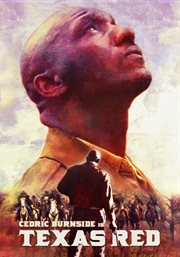Southern Discomfort Prologue Where I grew up, girls like me knew our place. We were expected to smile politely and keep our white-gloved hands folded neatly in our laps when we sat in church. We spoke only when spoken to. We said: "Yes, sir," and "No, thank you, ma'am," and "Why yes, some sweet tea would be just fine." Back talk was not an option. We did not ask: "Why?" We did not say: "That doesn't seem fair." We were expected to wear stiff, pressed dresses even under the blazing Mississippi sun, and to have perfectly curled hair and lightly powdered faces in the drenching humidity. As we grew up, we understood that stepping off the prescribed path in any way meant risking it all, and probably losing. Where I'm from, men like my father--rich, Cadillac-driving, Klan-sympathizing men--made the money. Women like my mother--beautiful, charming, educated only in how to entertain--ran the houses. If these women had any dreams beyond tending to their husbands, babies, and barbeques, they kept those thoughts to themselves. Black maids, like the two women who tended to me--first, Viola; then Virgie--raised the white children they cared for but were not allowed to sit at the family table, drink from the family's cups, or ride in the front seat of their cars. Black men and children were still called "boy," as in "What are you starin' at, boy?" And "nigger," as in, "I'm gonna need a few more niggers to pick my pecans this year." If you recoiled from the word, if it made your stomach clench and your insides boil, you were considered a "nigger lover," a dangerous insult. And if word of your sympathies spread, your family feared waking in the middle of the night to a burning cross on the lawn, or a brick thrown through the dining room window during supper. If your glamorous, tortured wife became an alcoholic, like my mother did, you sent her away to the state mental hospital in a straitjacket to dry out. If your husband was a notorious skirt-chaser, like my father was, you might pull your .38 Colt out at the dinner table and chase him around the house, threatening to kill him right then and there, but only after your dinner guests had left for the evening. And if you were a lesbian, before you even knew there was a word for the feelings you had had for as long as you could remember, you suppressed this fundamental part of yourself for as long as you possibly could. You lived a lie. You kissed boys and wore their fraternity pins, curled your hair, entered beauty pageants, joined a sorority. You and your friends talked about wedding cakes, honeymoons, and how many babies you wanted, just like you were supposed to. Because that's what good girls did. Appearances mattered above all. "That's just the way it is" and "Let it be" were common refrains. * * * Growing up in Waynesboro, Mississippi, in the heart of the Jim Crow Deep South, I never thought there was any other way than the way it had always been. No one I knew ever ventured farther north than Memphis or maybe Nashville, and that was just fine with them. My roots ran deep into the red earth; the land felt as much a part of me as my limbs, my heart. I hated it with a fury. I loved it with an all-consuming passion. This is the great paradox of the South. It's a savage place, a complicated place, and yet it still burrows into you, like the fangs of one of the water moccasins I used to hunt as a young girl down on the Chickasawhay River behind our farm. There's venom in the soil. But there's an alluring beauty in it as well. For a time, I assumed I had no choice but to stay on the straight and narrow path that had been laid out for me since birth. I'd wear the pressed dresses, the curled hair, the pin. I'd hold my tongue. I'd mind my manners. I'd play the clarinet and the piano even though I longed to play the drums. I'd marry a man exactly like my father, even though I was attracted to girls from the time I was four or five, when I first laid eyes upon a majorette in her green sequined leotard and white tassled boots. I'd be a charming and gracious hostess. I'd have the children, the impeccable house. Maybe I'd even have the black maid to raise my children and a staff of black men to pick the pecans and cut the lawn. I'd pass out finger sandwiches and pour sweet tea. And the cycle would continue. Or maybe I'd find out I was stronger than I thought I was. And the cycle--at least for me--would end. Excerpted from Southern Discomfort: A Memoir by Tena Clark All rights reserved by the original copyright owners. Excerpts are provided for display purposes only and may not be reproduced, reprinted or distributed without the written permission of the publisher.

